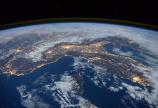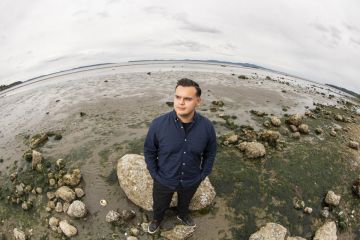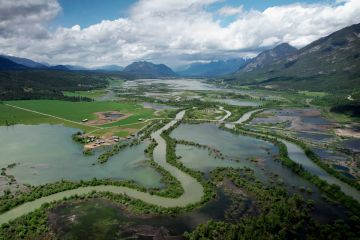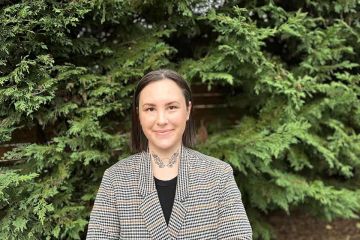Experts on climate change
Social Sciences, Science, Human and Social Development, Engineering
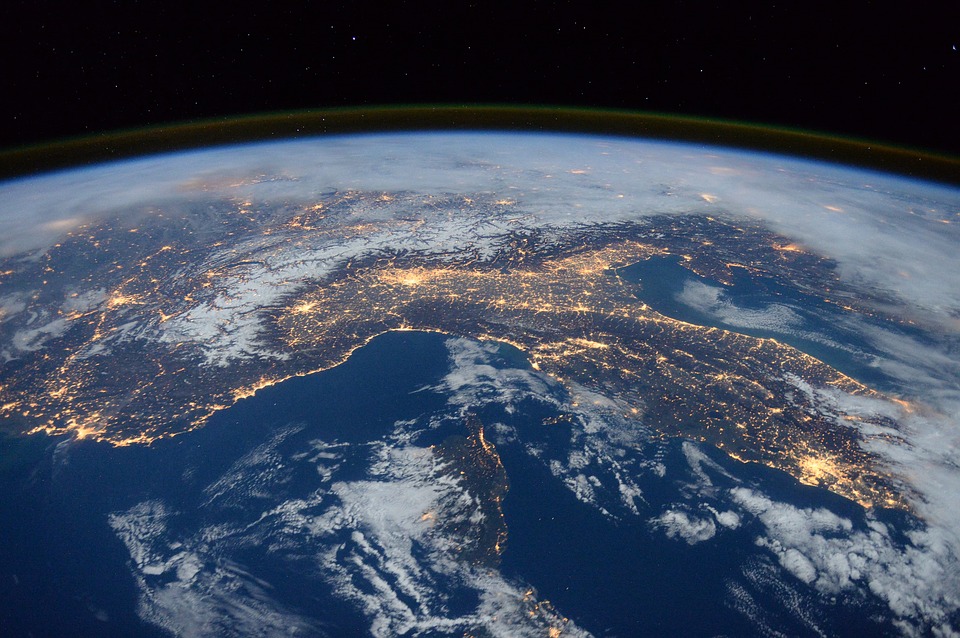
The following University of Victoria experts are available to media to discuss various aspects of climate change ahead of the Sept. 23 UN Climate Action Summit 2019 and during the federal election campaign:
Curran Crawford (Institute for Integrated Energy Systems/Mechanical Engineering) can discuss road transportation electrification across a range of sectors from e-bikes to buses and heavy-duty vehicles, and the associated implications for renewable energy integration. He is an expert in sustainable energy systems analysis and optimization, and also a part of the Transportation Futures project with the Pacific Institute for Climate Solutions. (Office: 250-721-7960 or curranc@uvic.ca)
Jason Colby (History) is an expert in environmental history and he can discuss environmental politics. A specialist on the history of people and marine mammals in the Pacific Northwest, Colby’s latest research offers historical perspective on the crisis facing the endangered southern resident killer whale population and the wider implications of this issue for ocean health. (Office: 250-721-7389 or jcolby@uvic.ca)
Kieran Cox (Biology) investigates how human activity influences biological communities, how microplastics move through marine ecosystems and how they are inadvertently consumed by humans. (Email at kcox@uvic.ca)
Ralph Evins (Civil Engineering) can discuss issues related to energy use in buildings, the building code, and district and city scale energy systems. His research is being used to develop online tools to help practitioners find cost-effective routes to deliver energy-efficient buildings. (Office: 250-472-5845 or revins@uvic.ca)
Johan Feddema (Geography) is the chair of UVic’s Department of Geography. His research simulates human impacts on the climate system including the impacts of land cover change on the climate system, as well as impacts of urbanization. He can also discuss how climate change is affecting society, human health and ecosystems. (Email at feddema@uvic.ca)
Robert Gifford (Psychology/Environmental Studies) is an expert in the human dimensions of climate change and the reasons why people don’t do more to prevent climate change—“the dragons of inaction.” He is an expert in environmental psychology and the barriers to sustainable behavior. (Office: 250-721-7532 or rgifford@uvic.ca)
Roberta Hamme (School of Earth and Ocean Sciences) is an expert in chemical oceanography and she can comment on the role oceans play in absorbing large quantities of excess carbon dioxide released by human activities. (Hamme is not available Oct. 15-18, but can be reached via email at rhamme@uvic.ca)
Kate Moran (Ocean Networks Canada) can discuss implications of climate policy. Prior to joining ONC, a UVic initiative, Kate worked in the Obama White House Office of Science and Technology Policy where she served as assistant director with a focus on Arctic, polar, ocean, the Deepwater Horizon oil spill, and climate policy issues. She can also discuss past geological climate extremes, their impacts, and what they mean for today’s rapidly changing climate. (Greig Bethel at 250-216-7510 or gbethel@uvic.ca)
Felix Pretis (Economics) is an expert in climate economic research. His international research network develops methods to better understand the complex relationships between human actions and climate responses and their associated economic effects. His most recent work studies the economic impacts of 1.5C versus 2C, to contribute to the IPCC special report. As co-director of the Climate Econometric Research Network, he brings together international researchers in the field of climate econometrics to study these issues. (Email at fpretis@uvic.ca)
Randy Scharien (Geography) specializes in Arctic sea ice and ocean sea ice climate interactions. He can discuss the warming trends being observed in the Arctic. (Email at randy@uvic.ca)
Photos
Media contacts
Jennifer Kwan (University Communications + Marketing) at 250-721-7641 or researchcomm@uvic.ca
In this story
Keywords: politics, government, climate, environment

